SUMMARY
This is AI generated summarization, which may have errors. For context, always refer to the full article.
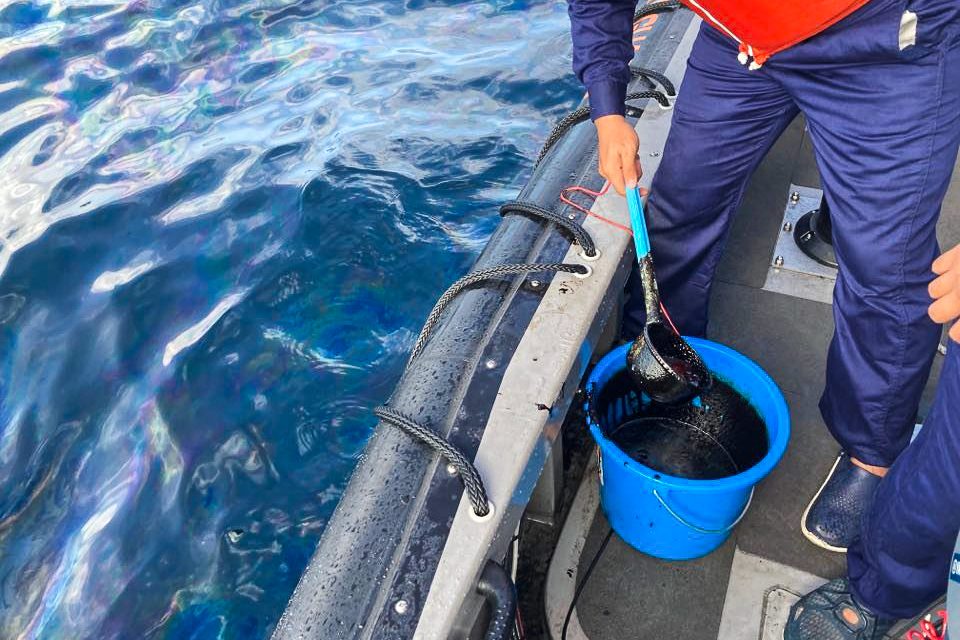
MANILA, Philippines – The Philippines’ maritime regulator is standing pat on its Senate testimony that MT Princess Empress, the oil tanker that sank off Oriental Mindoro with 900,000 liters of oil was a “colorum” or unlicensed vessel.
In an interview with News5 on Thursday, March 16, lawyer Sharon Aledo, spokesperson of the Maritme Industry Authority (MARINA), said the shipowner – RDC Reield Marine Services – did not complete submission of documents that would have led to the addition of the company’s new oil tanker to its fleet allowed by MARINA to operate.
Aledo was responding to questions on whether the Philippine Coast Guard (PCG) should have allowed MT Princess Empress to sail from the private port SL Harbor Terminal in Limay, Bataan, to Iloilo on February 28.
Including that fateful day when MT Princess Empress sank off Oriental Mindoro, the PCG had cleared the oil tanker to sail nine times to various ports in the country, including in Bataan, Misamis Oriental, and Iloilo.
When asked if MT Princess Empress was a “colorum” vessel, similar to the status of many public utility vehicles (PUVs) plying the country’s roads, Aledo said: “’Yun nga (That’s the case).” She agreed that the PCG should not have allowed the vessel to sail.
Had RDC submitted the additional documents MARINA required, Aledo said they would have scheduled a hearing and decided on the application for an amended certificate of public convenience (CPC). The regulator’s ruling would then have to be published in newspapers.
Aledo said the shipowner may be sanctioned for any violations, and that a hearing had been set to take this up. Sanctions include fines, suspension, or revocation of the company’s CPC. MARINA’s ruling may be appealed before the courts.
She said MARINA was already conducting an internal probe into whether its enforcement service was remiss in its duty with respect to RDC’s MT Princess Empress.
MARINA’s mandate is to ensure ships are safe in order to protect people and the environment.
Since the RDC was in the process of amending its CPC, Aledo said the shipowner could have sought a special permit to operate from MARINA for MT Princess Empress, but it did not.
The PCG uploaded on Tuesday images of RDC’s amended CPC after senators, in a public hearing earlier that day, castigated coast guard personnel for allowing MT Princess Empress to sail even without a valid CPC.
Presumption of regularity
PCG spokesperson Rear Admiral Armand Balilo told radio DZBB on Thursday that its personnel cleared MT Princess Empress to sail nine times based on what appeared to be an approved amended CPC filed with the coast guard’s National Capital Region office.
He said its personnel presumed regularity of the documents presented by the ship’s captain prior to sailing, and its amended CPC showed it was set to expire in 2042.
“We rely on the documents, and we rely on the good faith of the ship captain, that everything is fine with the vessel, it is seaworthy, has lifesaving equipment, at maayos ’yung papeles (the papers are in order),” he said.
Balilo said it would be difficult for coast guard personnel to determine during pre-departure inspection whether the documents are valid or not when the vessel is already ready to sail. He said in another radio interview that if RDC’s documents were spurious, then the shipowner should be held liable.
He compared the ship’s CPC to a motor vehicle’s registration documents, saying these should always be in order and presented during inspections.
Balilo also corrected the volume of oil carried by the sunken ship, saying MT Princess Empress was actually carrying 900,000 liters, not 800,000 as reported by authorities, when it left the port in Limay, Bataan.
“900,000 sa kanilang declaration, pero base po sa pagsusuri hindi naman eto overloaded,” he said. (The ship declared it was carrying 900,000 liters, but it wasn’t overloaded upon review.)
MT Princess Empress was a 500-ton oil tanker, which RDC bought in 2022.
Although the PCG is mandated to conduct pre-inspection of vessels, Balilo said it had limited personnel for thorough inspections. He said the coast guard personnel may also not be fully qualified to inspect the cargo of oil tankers.
“’Yun ang dilemma natin d’yan. Pagka talagang tiningnan ’yung mga cargo, wala naman expertise ang PCG personnel pagdating sa cargo handling and inspection of oil,” he said. “Kaya po, ’yung mga kargo, umaasa tayo sa declaration. We focus more on the documents and seaworthiness ng barko.”
(That’s our dilemma. If we are to really check the cargo, PCG personnel have no expertise on cargo handling and inspection of oil. So, when it comes to cargo, we rely on the declaration. We focus more on the documents and seaworthiness of the ship.)
‘Only in the Philippines’
Balilo said the Philippines was the only country in the world that still mandates its coast guard to inspect vessels prior to departure, adding that the PCG had long been asking Congress to remove this from its functions.
“Tayo lang sa buong mundo and may mandato na inspeksiyunin ang barko,” he said. (We are the only country in the world mandating its coast guard to conduct pre-departure inspections.)
PCG Deputy Commander Jay Tarriela, in an opinion piece published by Rappler in 2019, said pre-departure inspection of vessels should no longer be a task of the coast guard.
“The PCG officials are always put in the limelight after every incident. They are the ones held accountable to the public to explain why vessels collided or capsized. They are the ones crucified in matters that concern the unseaworthiness of the vessel or the excessive number of passengers on board. The rationale behind such thinking is because they are the last government agency that should ensure that the riding public would be safe,” Tarriela wrote.
“Ironic as it may seem, it is because of this PCG mandate that the public has forgotten the shipowners who were given ‘Certificate of Public Convenience’ as a license to operate and have this responsibility. The PCG’s performance of the predeparture inspection takes away this burden of responsibility from the shipowners.” – Rappler.com
Add a comment
How does this make you feel?
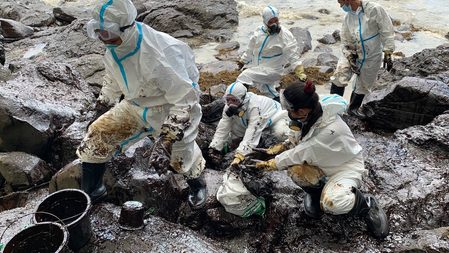
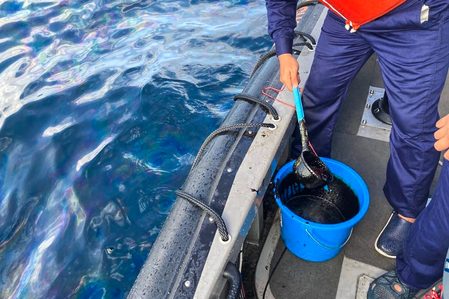





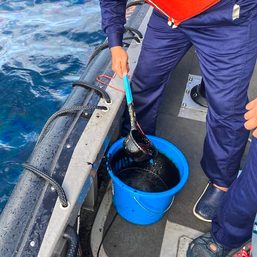



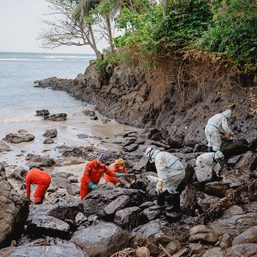
There are no comments yet. Add your comment to start the conversation.